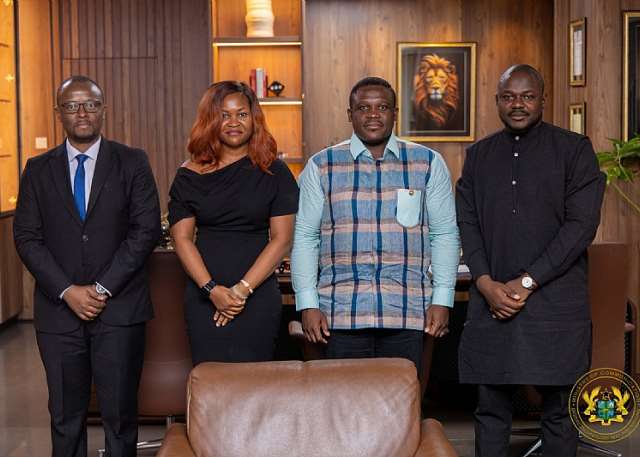Accra, Ghana – Ghanaian lawmaker Sam Nartey George, Member of Parliament for Ningo-Prampram, has held a high-level meeting with senior representatives of TikTok to explore the introduction of a creator monetization model tailored to Ghana’s digital ecosystem.
The meeting, which took place on the sidelines of the ongoing Africa Creator Economy Conference, focused on empowering Ghanaian digital content creators through fair compensation and the establishment of sustainable income channels on the TikTok platform.
Pushing for Local Inclusion in the Global Creator Economy
Sam George, known for his vocal advocacy on digital rights, data protection, and youth empowerment, said the time has come for global tech platforms operating in Ghana to invest directly in local talents. According to him, Ghana has one of the most vibrant creative communities on TikTok in sub-Saharan Africa, yet lacks access to the platform’s full monetization features such as the Creator Fund, gifts, and ad revenue sharing.
“Ghanaian content creators have built strong global audiences on TikTok, generating millions of views monthly. It’s unfair that they’re still locked out of monetization programs that creators in the US, UK, and South Africa already enjoy,” Sam George emphasized.
He noted that monetization would not only incentivize quality content creation but also create employment opportunities for young people in a rapidly digitizing world.
Read Also: Sam George Demands Legal Action Against Lue & Rue Over Public Display at Black Star Square
TikTok’s Response and Promising Outlook
According to sources close to the meeting, TikTok officials acknowledged the concerns and expressed willingness to explore pathways for implementing creator monetization in Ghana. While no firm date was given for the rollout, the platform indicated that internal reviews were ongoing, and Ghana was a “priority market” in Africa due to its high content engagement rates.
TikTok also discussed the challenges around digital infrastructure, payment systems integration, and local content moderation, all of which play crucial roles in expanding monetization efforts to new markets.
The conversation forms part of broader ongoing efforts by the Ghanaian government to hold Big Tech accountable and ensure that African creators are not left behind in the global creator economy.
Collaborative Push for Policy Reform and Regulation
Sam George also hinted at legislative proposals being drafted by the Parliamentary Committee on Communications to ensure tech companies contribute fairly to Ghana’s digital economy.
“We must move from being just users and consumers of tech platforms to active participants in the value chain. These platforms must be compelled, either by policy or partnership, to reinvest in the economies they profit from,” he said.
He called on other stakeholders — including the Ministry of Communications, youth influencers, and digital policy advocates — to support the push for creator monetization.
Why Monetization Matters for Ghanaian Creators
Many Ghanaian TikTokers, including popular influencers with millions of followers, rely on brand deals and livestream gifts as their only source of income. Unlike creators in South Africa or the U.S., they cannot access TikTok’s Creator Fund or advertising revenue.
The absence of an official monetization program limits the growth of Ghana’s creator economy and drives digital talents into markets where they can earn more for the same content. Introducing monetization in Ghana would mark a significant turning point and help solidify the country’s position as a content powerhouse in Africa.

